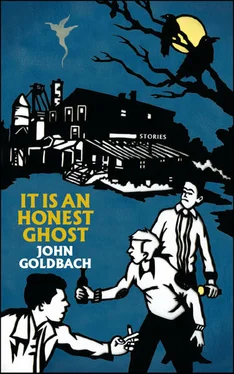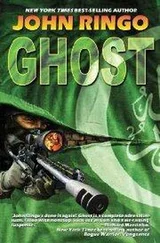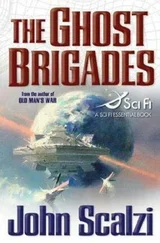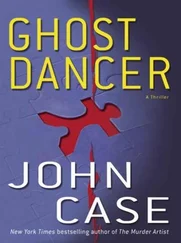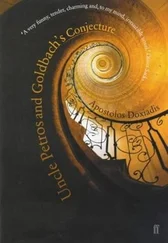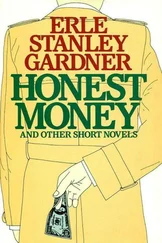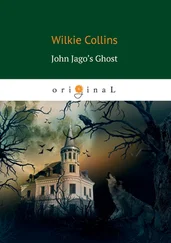When Anita Khalsa made the announcement that we were heading back to Lamu, I felt a great sense of relief. I was one of the first on the rowboat to the sailboat. I sat on a bench on the boat, waiting for the others to climb aboard, biding my time. Boris and Stanley were the last to be transported to the sailboat. Stanley stood up in the small boat, extending his hand to be helped out onto the big boat, tipping the small boat with Boris still onboard. Stanley made it onto the big boat without getting a splash of water on him. Boris emerged from the ocean laughing, pulling himself back onto the rowboat.
When we disembarked, I didn’t go to Petley’s, where many were heading for a nightcap, and I didn’t head back to Yumbe House right away; instead, I decided to sit alone on a concrete bench at the jetty, looking out onto the sea. I stared at the stars trying to collect myself. As I stared, the stars began to whirl. I closed my eyes, finding all the light dizzying, and when I opened my eyes I saw Osama.
Osama’s silhouette stalked the seascape. His stride long, in a kikoy , his head turning to face me, staring me down, as he walked. It was dark but I could feel his eyes pinning me to the concrete bench. At one point, due to the intensity, I closed my eyes. It took my breath away, briefly, that is, my breath was taken away, from somewhere, and then it snapped back inside me, with a terrifying shock, an intimation of nothing, when it’d be taken for good. When I opened my eyes, Osama was farther along the jetty, walking, no longer staring me down.
I waited ten minutes, then made my way back to Yumbe House.
Back at the inn, Jason and Mark were having a drink on the day-beds, talking about their shared childhood and adolescence. They invited me to join them.
Jason said, ‘Boris says you’re not feeling great.’
I felt a little choked up; Jason seemed so nice.
‘I think the antimalarials might be getting to me,’ I said, quietly, embarrassed, afraid that if I spoke too much tears would follow.
Jason smiled, the friendly, comforting smile of a young Nathan Lane.
‘Seriously,’ he said, ‘stop taking the antimalarials. If you get malaria, we’ll get you medication, but in the meantime stop taking them. The side effects can be really terrible — like, people have psychotic reactions. You’re going to be fine, but stop taking them now.’
I was so grateful to Jason — and to his second cousin, Nathan Lane — because I believed him. I finally believed everything would be all right.
They sat up talking and drinking and I gave them my bottle of Kenya Cane and I drank water till I was sleepy, then I hit the hay, excited to be leaving Lamu the next day, ready to get back to Nairobi, then Amsterdam and Montreal.
I stopped taking my meds and didn’t drink for the rest of the trip, either. When we were back in Nairobi, back at the Heron Court Hotel, I read Half of a Yellow Sun and didn’t socialize much save dinner at Galina and Martin’s house with Sveta and Alexi and Tanya and Boris.
Then it was time to leave Nairobi.
Again, we had a long layover in Amsterdam but not as long as on the way there, so there was no need for a day-room. We ate overpriced sandwiches, which Boris generously bought, and Tanya and I walked around the gift shops as Boris checked his email and surfed the internet.
Saddam Hussein had been hanged the day before and I didn’t know about it. It was on the cover of every newspaper — The New York Times, The Wall Street Journal, De Telegraaf, Haaretz, Le Monde, El País — all with images of Saddam. They did it, I thought, and wasted no time. They executed him.
Holding Tanya’s hand, a young woman walked past us, in her early twenties, I guessed, wearing a T-shirt that said F ★ CK , and I hoped Tanya didn’t read her shirt. But then she said, ‘You’re never a star when you use that kind of language.’
‘You’re right,’ I said. ‘So true!’
We waited around for our plane. The Amsterdam sky was grey, for it had been raining lightly. I stood at the giant window looking out onto the runways. The light grey sky streaked with white and dark clouds looked like cold hard marble.
Our flight was called.
When we landed it was nighttime and snowing in Montreal. Our luggage arrived fairly quickly and we breezed through customs.
I spotted Nina waiting for us on the other side of the gate, and when Nina saw Tanya her eyes were full of tears and she was smiling, holding her hands up to her chin, patiently waiting and holding back her excitement to see her child. As soon as we were through passport control and on the other side of the gate, Tanya made a mad dash for her mother and Nina picked her up in her arms, squeezing her tightly, then putting Tanya down; Nina kneeled and cleared the hair away from her daughter’s face, taking her face in, examining it, and she smiled tearfully, kissed her and then embraced her tightly, the two cheek to cheek, holding each other. I choked up and I could tell Boris choked up, too.
I said I’d grab a cab and Boris laughed and said, ‘Don’t be silly, man. We’ll drive you home.’
I was back in my apartment by eight that evening, giving me enough time to shower before meeting my girlfriend at a party, a party to ring in the new year, though I wasn’t in a partying mood. I knew things between Stacey and me were finished.
‘I find pretty much everybody I’ve ever cared about disappointing,’ said Jenny, ‘and it’s always been this way, even when I was a little kid. No one can love you the way you want to be loved. It’s just another sad fact.’
‘There are two types of people: one, those who believe in an afterworld and the various sets of rules one has to live by to get to said afterworld, even if those rules hurt others; and, then, two: those who don’t believe in an afterworld and within that group many would like to enact the dichotomy of heaven and hell here on earth because they won’t get the satisfaction in the afterlife because they don’t believe in one. Regardless, that makes for a hell of a lot of people who don’t care about others and only care about getting their just deserts, whether here on earth or in the heaven that awaits. And I don’t see much else going on.’
‘No, I hate cocaine. It gives people a false sense of accomplishment. Which makes them super obnoxious. But go ahead if you want.’
‘Just a couple of beers.’
‘Sometimes I think I associate heartbreak with having zero appetite and getting skinny just so I put it in a positive light.
Who wants to be in love and content and getting plump on turkey,’ she said.
‘No, he died in ’63. All right. Sure.’
‘People aren't interested in the truth. They're interested in preserving their own narcissism — keeping it intact, whatever the cost…’
‘ Babe and The Mother and the Whore .’
‘Tastes like diesel fuel.’
‘Jews have been historically seen as obstacles to ridiculous fantasies,’ she said, ‘but that doesn’t mean they haven’t manufactured their own equally ridiculous fantasies. Israel, for example.’
‘People just want to get famous, like it’ll save them, even if the reasons for getting famous are ignominious. It’s actually a boring topic and for stupid people, like God.’
‘I don’t know. I kind of find sex boring,’ she said. ‘Like, cocks are fascinating, I guess, but also gross, and they make you pregnant and ruin your life and at best give you a home filled with children and a fat husband who all resent you. And ruin your body, of course. But, yeah, I kind of like to give blowjobs, though.’
‘I actually find Jews really annoying, too,’ she said, ‘so don’t worry if you’re an anti-Semite. Actually, I take that back, not that I find Jews annoying, but that I don’t worry about antiSemites. They’re worse than the Jews.’
Читать дальше
